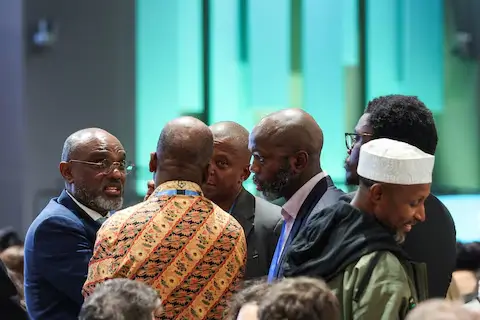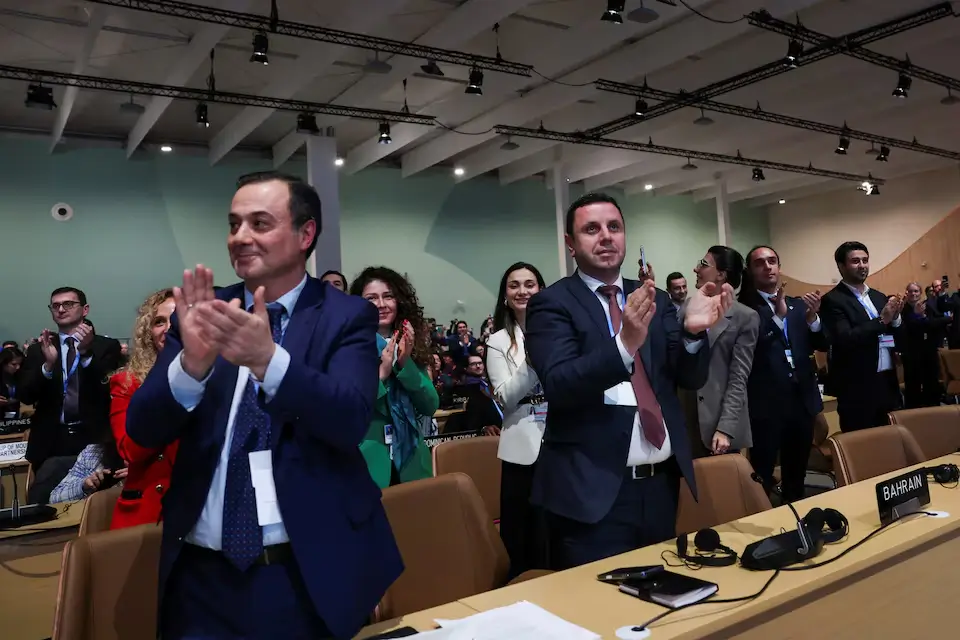A contentious $300 billion climate finance agreement was reached at the COP29 summit in Baku, Azerbaijan, drawing mixed reactions from global leaders and highlighting deep divisions between wealthy and developing nations. The deal represents a pivotal step in global climate action but has also exposed stark inequalities and differing priorities on the road to addressing the climate crisis.
Key Climate Finance Agreement Points
The agreement includes an annual funding target of $300 billion by 2035, tripling the previous $100 billion commitment, which many critics say had already fallen short. Additionally, negotiators agreed on a broader goal to mobilize $1.3 trillion annually from public and private sources, signaling a significant shift toward engaging financial markets and private entities in the climate battle.
Other notable achievements include the establishment of new rules for a global carbon credit trading market, intended to create incentives for emission reductions while allowing flexibility for developing economies. The summit also set the framework for next year’s climate conference in Brazil’s Amazon rainforest, where nations are expected to present detailed plans for achieving mid-century carbon neutrality.

Developing Nations Voice Strong Opposition to Climate Finance Deal
Despite the apparent progress, the deal faced immediate criticism from developing countries. India’s representative, Chandni Raina, dismissed the agreement as an “optical illusion,” arguing that it prioritizes the interests of wealthy nations while offering limited immediate relief to the most climate-vulnerable populations. Small island nations, such as the Marshall Islands, acknowledged some progress but emphasized that the funding falls far short of what is urgently needed to protect millions from rising sea levels and extreme weather.
A persistent sticking point remains the lack of clarity on how the funds will be distributed and who will be held accountable for their allocation. Several nations also expressed frustration over the continued lack of compensation mechanisms for loss and damage caused by climate-related disasters.
Critical Climate Finance Challenges Ahead
The agreement comes amid several pressing concerns:
- Global temperatures are projected to rise by 3.1°C by century’s end, far exceeding the Paris Agreement’s 1.5°C target.
- Heated debate continues over which nations should contribute to the fund, with European governments pushing for contributions from China and Gulf states.
- Political uncertainty looms with Donald Trump’s recent election victory, raising questions about future U.S. participation in global climate efforts.
- Competing global priorities, including geopolitical tensions and economic challenges, threaten to overshadow climate action.
Climate Finance Disasters Underscore Urgency
The urgency for action is underscored by this year’s unprecedented climate events:
- Record-breaking global temperatures expected for 2023.
- Devastating floods in Africa claiming thousands of lives.
- Deadly landslides across Asia.
- Severe drought conditions in South America.
- Spain’s Valencia region suffering floods with over 200 casualties.
- The United States experiencing 24 billion-dollar disasters this year alone.
Future Implications for Climate Finance
UN climate chief Simon Stiell described the deal as an “insurance policy for humanity,” while acknowledging the daunting challenges ahead. President Biden’s administration expressed strong support for the agreement but noted that achieving climate goals will require unprecedented cooperation, innovation, and accountability.
Next year’s summit in Brazil will be a critical test of the global community’s ability to bridge the gap between promises and actions. With emissions continuing to rise and fossil fuel use stubbornly persistent, the world’s ability to meet climate targets remains uncertain. The negotiations in Baku underscore the challenge of balancing historic responsibilities, current capabilities, and the urgent need for transformative action in a rapidly warming world.

